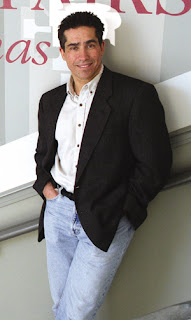
We recently had a discussion in class regarding sanctification. Drawing three distinctions between
Natural Theology (we have the power in Christ to do the good now and are made perfect through our works),
Reformed theology (we are hopeless sinners, but we can limpingly progress toward our final destination in the power of the Holy Spirit, and should make some effort to that effect, though perfection is only an eschatalogical category) and
Evangelical theology (we're only counted righteous when God looks at Christ---the imitation of Christ takes sort of a backseat to spreading the gospel---and perfection or improvement is only an eternal reality). I'm sure these lines get blurred because people are hardly uniform in their beliefs, but we tried to differentiate them to focus on their difference.
Then I came across this quotation from Calvin.
“But no one in this earthly prison of the body has sufficient strength to press on with due eagerness, and weakness so weighs down the greater number that, with wavering and limping and even creeping along the ground, they move at a feeble rate. Let each one of us, then, proceed according to the measure of his puny capacity and set out upon the journey we have begun. No one shall set out so inauspiciously as not daily to make some headway, though it be slight. Therefore, let us not cease so to act that we may make some unceasing progress in the way of the Lord. And let us not despair at the slightness of our success; for even though attainment may not correspond to desire, when today outstrips yesterday the effort is not lost. Only let us look toward our mark with sincere simplicity and aspire to our goal; not fondly flattering ourselves, nor excusing our own evil deeds, but with continuous effort striving toward this end: that we may surpass ourselves in goodness until we attain to goodness itself. It is this, indeed, which through the whole course of life we seek and follow. But we shall attain it only when we have cast off the weakness of the body, and are received into full fellowship with him.”
- John Calvin [1509-1564]
Institutes of the Christian Religion, McNeill and Battles, eds., p. 689
I'm curious to hear from some of the natural theologians out there as to whether they would agree with these distinctions or not, and I'd also like to know how they would characterize the process of sanctification.









































